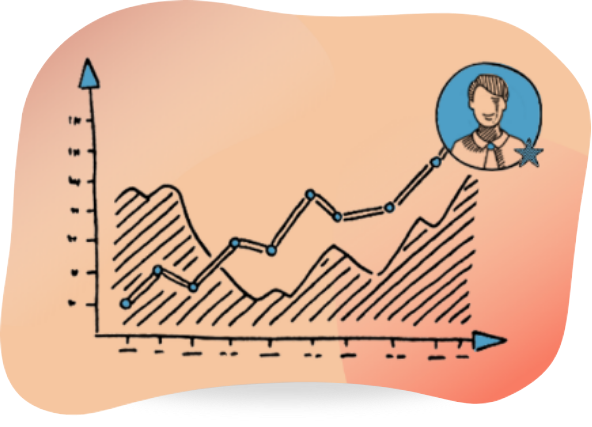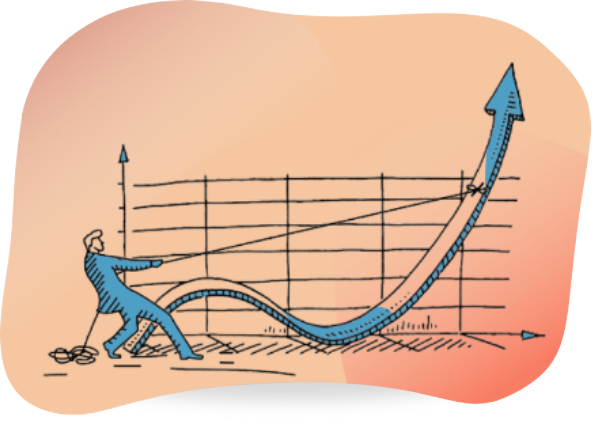Choosing the Right Sales Tools for Your Business in 2023

Key Takeaways
- Leveraging the latest sales tools can help streamline your sales processes, enhance customer relationships, and propel revenue growth to new heights.
- According to LinkedIn’s State of Sales Report 2022, an impressive 40% of sales professionals have closed deals worth over $500,000 without meeting the buyer in person.
- A robust CRM tool fosters stronger customer connections and propels your sales efforts towards success.
- Lead management tools enhance business lead generation and conversion efforts by centralising lead storage and streamlining lead management processes through automation.
Are you looking to increase your sales and close more deals in 2023? Investing in the right sales tools can make all the difference in improving your sales cycle and achieving your goals.
With the right tools, your sales team can streamline their efforts and focus on what matters most – selling. From lead generation to CRM, every aspect of your sales strategy can be optimised with the right technology.
In this fast-paced world of business, having the right sales tools can make all the difference. Whether you are a small start-up or a large corporation, having access to the latest technology can help you streamline your sales processes, improve your customer relationships, and ultimately drive revenue growth.
Choosing the right tools for your business can seem like a daunting task. But fear not! In this blog, we will explore the key factors to consider when selecting sales tools and provide you with an overview of the top sales tools your business needs in 2023.
Why do we need Sales Tools?
To succeed in sales, you need the right tools at your disposal. Sales tools allow you to find and track prospective customers, connect with them, and close more deals.
A wide variety of sales tools are available on the market, and the best tool for you will depend on your specific needs. However, some of the most popular and essential sales tools include customer relationship management (CRM) software, sales intelligence software, lead generation software, and proposal software.
The right sales tools help streamline the sales process, providing salespeople with the necessary insights and information to target the right customers at the right time. This allows them to focus on building relationships and adding value rather than getting bogged down with administrative tasks.
Access to the latest and greatest sales tools is essential for sales professionals in a rapidly evolving business landscape. Failure to keep up with the latest trends and technologies can result in lost customers and top sales talent.
Elevate your Sales Game with These Must-Have Sales Tools
Discover the numerous options for sales tools to boost your success at every stage of the sales process! From must-have Customer Relationship Management software to powerful Sales Analytics tools, this list of sales tools is sure to take your game to the next level.
1. Analytics and Reporting
Say goodbye to manual data collection and hello to automated insights. Analytics and reporting tools collect, analyse, and present sales data in a clear and concise format, like a report or dashboard. With the plethora of features these tools offer, you’ll be able to make informed decisions and take your sales to the next level. Some common features include:
- Sales performance tracking: Allows sales teams to see how well they are performing against their targets and identify areas for improvement.
- Data visualisation: Helps sales teams to see the trends and patterns in their data and gain insights into their sales performance.
- Custom reporting: Enables sales teams to create customised reports to meet their specific needs and see the data that is most important to them.
- Dashboards: Provide a visual representation of sales performance, with key metrics and KPIs displayed in real time.
- Data export and integration: Allows sales teams to export and integrate their data with other tools and systems, such as CRM or accounting software.
Top Tools
Tableau is a powerful data visualisation and business intelligence software used to analyse and present data in a meaningful way. It enables users to connect to various data sources, create interactive dashboards, and publish reports in minutes. Tableau’s intuitive drag-and-drop interface and interactive features make it easy for users to explore and analyse data, uncover trends, and gain insights.
Tableau also provides robust collaboration and data-sharing features, allowing teams to share insights and work together to find solutions. It is widely used across various industries, from finance and retail to healthcare and technology, and is known for its versatility and ability to handle large amounts of data.
Some other top reporting tools include Zoho Analytics, HubSpot Marketing Analytics, Salesforce Analytics, and SAP Crystal Reports.
2. Customer Relationship Management (CRM)
Customer Relationship Management (CRM) is a powerful software application that revolutionises how businesses manage and analyse customer interactions and data throughout the customer journey. With a CRM tool, sales teams can store, manage, and analyse customer data, including interactions, transactions, and behaviours. It helps you deepen customer relationships and drive sales success. Some of the key functions of a CRM tool include the following:
- Contact Management: Allows sales teams to store and manage customer information, such as names, contact information, and communication history.
- Lead and Opportunity Management: Helps sales teams track and manage their interactions with potential customers, from lead generation to closing deals.
- Sales Pipeline Management: Enables sales teams to see the status of their deals and the progress of their sales pipeline, and make data-driven decisions about which deals to prioritise.
- Marketing Automation: Helps sales teams automate repetitive marketing tasks, such as email marketing, lead nurturing, and lead scoring, to increase their efficiency and effectiveness.
- Customer Service and Support: Enables businesses to manage and resolve customer support issues, and track customer satisfaction.
Top Tools
- Salesforce – Salesforce is a cloud-based CRM platform that offers a wide range of sales and customer management tools, including contact management, lead and opportunity management, reporting and analytics, and marketing automation.
- HubSpot CRM – HubSpot CRM is a free, cloud-based CRM platform that offers a range of sales and customer management tools, including contact management, lead and opportunity management, and reporting and analytics.
- Pipedrive – Pipedrive is a sales CRM platform that focuses on helping sales teams manage their pipeline and close more deals, with features such as lead and opportunity management, pipeline management, and reporting and analytics.
- Zoho CRM – Zoho CRM is a cloud-based CRM platform that offers a range of sales and customer management tools, including contact management, lead and opportunity management, reporting and analytics, and marketing automation.
3. Lead Handling
Lead handling tools help businesses improve their lead generation and conversion rates by providing a centralised location to store and manage leads and automating many of the manual tasks involved in lead management. They also help sales teams focus their efforts on the most promising leads by providing insights into lead behaviour and engagement and automating lead nurturing and scoring. Some of the key functions of lead-handling tools include:
- Lead Capture and Management: Allows businesses to capture leads from various sources, such as web forms, landing pages, and events, and store them in a centralised database.
- Lead Prioritisation: Helps sales teams prioritise their leads based on factors such as lead score, demographic information, and buying behaviour, so they can focus their efforts on the most promising leads.
- Lead Nurturing: Automates the process of nurturing leads by sending targeted emails and other communications, based on the lead’s behaviour and engagement with your business.
- Lead Scoring: Assigns a score to each lead based on their behaviour and engagement with your business, to help sales teams prioritise their efforts and focus on the most promising leads.
- Lead Conversion: Helps sales teams track and manage the process of converting leads into customers, by tracking their progress through the sales pipeline and providing insights into which leads are most likely to convert.
Top Tools
The best tool for your business will depend on your specific needs and requirements. When choosing a lead handling tool, consider factors such as the size of your sales team, the complexity of your lead generation and conversion processes, and the level of customisation and integration you need.
Here are some of the top lead handling tools:
- HubSpot – HubSpot provides a comprehensive solution for lead management that helps businesses streamline their sales processes. With HubSpot, businesses can increase conversions by capturing, organising, nurturing, scoring, qualifying, routing, and converting leads.
- Marketo – Marketo provides advanced lead nurturing capabilities, allowing businesses to automate email and SMS communications to educate and engage leads over time. Marketo also offers integrated sales tools, including email tracking and meeting scheduling, to help businesses close more deals and increase conversions.
- Pardot – Pardot is a SaaS marketing automation platform provided by Salesforce, designed explicitly for B2B sales and marketing organisations. It offers a range of tools, including email automation, targeted email campaigns, and lead management. The platform provides the ability to create email drip campaigns, lead nurturing and scoring, campaign segmentation, and more.
- LeadSquared – LeadSquared is a cutting-edge SaaS platform that offers comprehensive sales, marketing, and onboarding automation solutions. LeadSquared offers integrations with popular CRM platforms, such as Salesforce and Microsoft Dynamics, to provide a seamless and streamlined sales experience.
- ActiveCampaign – ActiveCampaign offers a comprehensive cloud-based marketing and sales automation platform that integrates email marketing, lead scoring, web analytics, a robust CRM system, and a live chat messaging platform called Conversations.
Conclusion
Choosing the right sales tools for your business in 2023 is an important decision that can significantly impact your sales performance. With the wide variety of sales tools available, it is important to consider your specific business needs and goals and choose tools that support your sales process and align with your overall sales strategy.
Whether you need lead handling tools to manage your leads, analytics and reporting tools to measure your sales performance, or customer relationship management tools to build stronger relationships with your customers, there is a sales tool that is right for you. By taking the time to research and choose the right sales tools for your business, you can increase your sales efficiency, improve your sales performance, and achieve your business goals in 2023 and beyond.


![[Sales & Marketing Success] The Need for Data Accuracy](https://www.regalix.com/wp-content/uploads/2023/02/Sales-Marketing-Success-The-Need-for-Data-Accuracy_TN.png)
